Meet the Presidents
Being President of the Students’ Union is one of the most extraordinary, challenging and rewarding roles a young adult can fulfil. Met Magazine met four former Presidents and the current post-holder to discuss the changing nature of the student movement. We begin with Liberal Democrat peer Lord Scriven
Lord Scriven
Paul Scriven is a people person. Someone who listens. Someone who tries to find areas of common ground between disagreeing groups.
It’s a characteristic, developed during his time at Manchester Metropolitan, that has served him well through his subsequent career in the NHS, private sector consultancy, as the leader of Sheffield City Council and now as a Liberal Democrat peer in the House of Lords.
Now Baron Scriven of Hunters Bar in the City of Sheffield, he studied Community Studies from 1988 to 1992 and served as President of the Students’ Union for a year.
“Everything I learnt and was taught during my time at Manchester 30 years ago was about the importance of identity. When you rip that away from people, it creates a real volatility,” he said.
“The importance of that learning has only really come into focus in the last few years, as we reflect on why so many people felt left behind and duly voted to leave the EU.”
Though a hardened political campaigner now, his path to higher education and student political activity wasn’t easy, nor was it inevitable.
“From a very young age I was interested in current affairs,” he said.
“I was from a poor working class family in Huddersfield, and my natural inclination was to get involved in politics.
It’s important to be yourself and champion the things you really believe in
“I helped out on a council election locally for Labour, and at the time Militant were very active.
“But over that period I left party politics and I felt uncomfortable. I began to question what was being said. When I arrived in Manchester I decided to take time out and read political philosophy, over and above my course. I came across On Liberty by John Stuart Mill and had a real moment of discovery and a strong sense of what I am, a liberal.
“My values and philosophy are very important to me. It’s important to be yourself and champion the things you really believe in. Don’t be afraid to speak truth to power, be independent, be enquiring, and stand up for what you believe.”
He recalls that student politics at the time was a pursuit of committed activists, with only a few hundred attending union meetings.
“When I was around, the Students’ Union was dominated by the National Organisation of Labour Students (NOLS), the Socialist Workers Party and the Revolutionary Communist Party. In truth, they were very small numbers involved, compared to the wider student body. Most students weren’t that involved in politics.”
And while his political leanings were against the grain of the activists, his student life was fairly unconventional too.
He was a little older than most of his cohort, having left school at 16 to work on highway construction sites before starting A-levels at Huddersfield Technical College.
Although political, he wasn’t in any party and at the end of the second year he stood against the left-wing tide as an independent candidate for President of the Students’ Union and won.
He says he took some important things from his time as President. Notably, he built a strong relationship with the Vice-Chancellor, Sir Kenneth Green.
“I wanted to build a relationship with him and then see what we could build together for mutual benefit. I sought his advice and I think, as a result, I got more for the students. It reinforced my view about how you got things done. He mentored me and I could go to him, realising he’s not an institution, but a human being.”
The proof of the strong bond between them was highlighted on graduation day.
Lord Scriven explained: “When I walked up to collect my degree, he stopped the ceremony to talk to me on stage and invited me and my parents back afterwards for tea and coffee. My mum was looking on in horror and after the ceremony asked me what I’d done wrong!”
He reflects that there were conflicts to resolve at the time.
Margaret Thatcher’s Conservative government introduced an unpopular new tax called the community charge in 1990, levying a single fixed charge on every citizen, set locally by the council.
Dubbed the ‘poll tax’, it prompted a hostile response with riots following a march in central London in March 1990.
“It really politicised a lot of students. Suddenly I found myself around a rising political movement,” he recalled.
“Then there was a sit-in over issues around accommodation. I think it was locks on fridges in the halls of residence. But, frankly a lot of grievances were whipped up by activists who were divorced from the reality of how you sort these problems out,” he said.
This was where his growing trust with Sir Kenneth came into play.
“Sometimes to lead, you have to take people where they don’t want to go. But, because of my relationship with Kenneth Green I could tell him that it was possible for both sides to come away with something. He told me I was old beyond my years, which I think was a compliment,” he laughed.
“It came back to valuing individuals as well as a core purpose. I also realised that people who were my political opponents were not my enemies. I didn’t agree with what they had to say, but I would always defend their right to say it.”
After graduating in 1992, Scriven went into the NHS on the fast track management programme, working in York, the West Midlands and eventually moving to settle in Sheffield with his partner David, now his husband.
He says his political career was accidental. After joining up and getting active in the local Liberal Democrats, he stood for Broomhill ward in Sheffield and to his surprise, he won.
Within two years he was group leader and in 2008, when his party took control of the council, he became the leader of Sheffield City Council.
He joined the House of Lords in 2014, but he makes no secret of his disdain for it as an institution and fervently favours its abolition.
Intensely informal, he is proud to be the first Lord to address the House without a tie in a debate.
He uses the platform in the Lords to press on with issues that are important to him, to his values, to his strong public service ethos.
He’s campaigned on LGBT asylum, looking after people who have had to flee countries where they have no protection from violence and persecution.
He’s also asked questions in the House in the 2018 sitting on human rights in Bahrain.
He also uses his experience in local government to lobby for public sector reform, to work with citizens to deliver improvement to their lives – the very foundation of his professional life that was built at Manchester Metropolitan.
He said proudly: “I simply wouldn’t have been so brave if I hadn’t been to Manchester and studied how communities come together to solve acute problems. We brought people together who had differences.”
Sibtain Jiwani
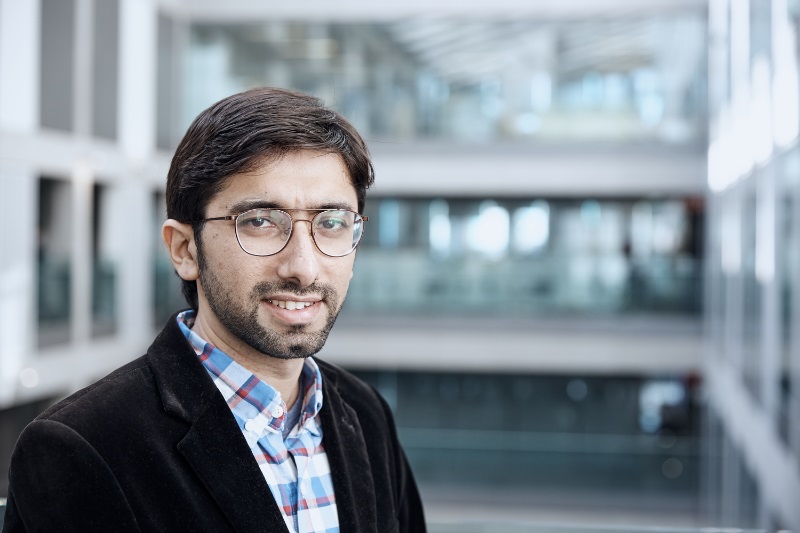
Entrepreneur Sibtain Jiwani can trace back his business success to his formative years in the M15 postcode.
“University definitely changed me,” Jiwani, who now runs a price comparison website in Pakistan, said.
“It opened my mind. It taught me to be less judgemental and see things from others’ point of view.
“I now look at things in a different way. I carry out a critical analysis and only then make a decision.”
Jiwani served in the President’s role in 2007/08 after finishing a Business Information Technology sandwich course.
His decision to run for the presidency actually came about when a friend, who had planned to run for the top job, decided to return to Pakistan to take over the running of the family business.
Jiwani stepped in and ended up in an unprecedented dead heat with his remaining opponent in the final elimination round.
This left the organisers scouring over the by-laws for a tie-breaker, which Jiwani won thanks to his superior first round tally – thus becoming the first international student to be elected President of the Students’ Union.
Studying abroad in Britain broadens your horizons and gives you new perspectives
on different cultures
He said: “What I’m most proud of is being able to work on some of the issues that I wanted to address – education, and access to education – rather than something like making the price of beer cheaper in the SU bar.
“I believe that, yes, students go to university for the wider experience, but above all to get a good education.”
Jiwani felt – and still feels – that students should appreciate the Students’ Union as something more than a place simply to get a drink and some food.
“People should be more aware of what The Union offers in terms of help with fees, housing and welfare issues,” he said.
Hailing from Karachi, Jiwani looks back fondly on his time studying in the North West. It was his first time living away from home and despite feeling overwhelmed in the beginning, he soon settled in and realised he had made the right choice.
He said: “We have good universities in Pakistan and they would have been less expensive to attend than what it cost in the UK. But studying abroad in Britain broadens your horizons and gives you new perspectives on different cultures.
“Manchester Metropolitan opened a lot of doors in terms of learning and employment.”
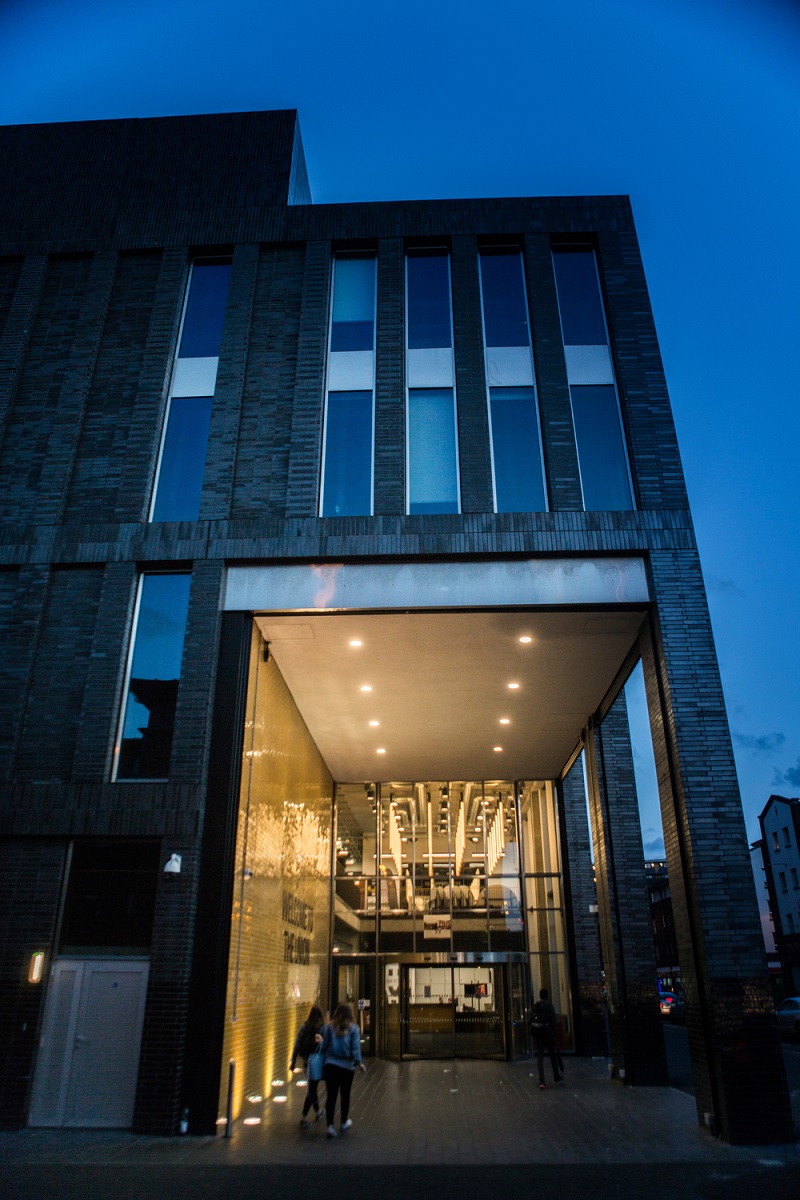
Sarah Hardy
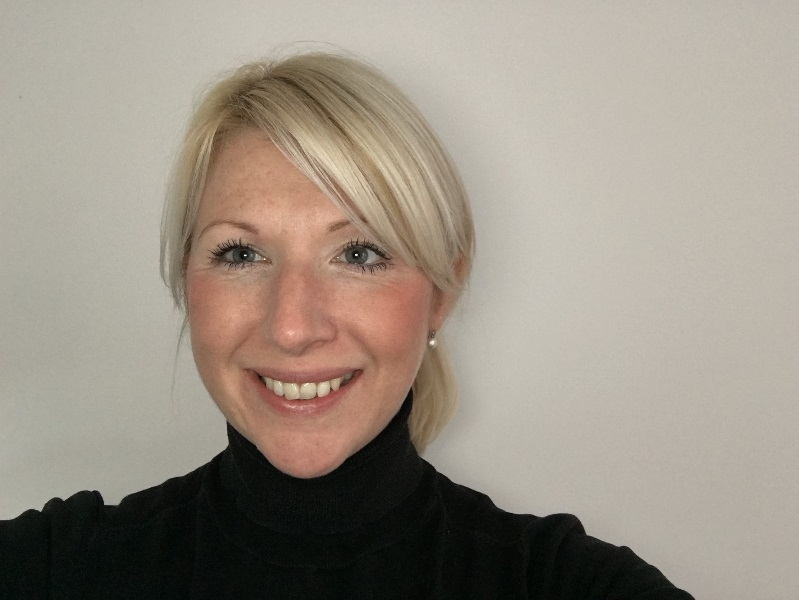
The skills built up during Sarah Hardy’s time at Manchester Metropolitan are now allowing her to help young adults aspire to achieve their dreams of going on to higher education.
Hardy now works as the head of the chief executive office for The Prince’s Trust, a youth charity established by the Prince of Wales to help young people aged 11 to 30 to get into jobs, education and training.
The regular contact she has with teenagers and young adults, especially those with difficult personal circumstances, puts into context the value of her university experience.
She said: “You build your life skills and independence and learn how to be able to study by yourself and how to conduct research and learn about the importance of timescales and deadlines.
“I would like to think higher education is still an aspiration, although people nowadays really have to consider whether they want to get into a high level of debt.
“I think students are looking at all the options, such as degree apprenticeships: learning on the job and earning while you learn can be really attractive.
“I support social mobility campaigns like First Generation and it’s really important young people are given the chance to go to university whatever their background.”
You build your life skills and independence and learn how to be able to study by yourself
Hardy worked in the Students’ Union’s marketing department soon after starting her degree before an increasing urge to help others and tap into her campaigning streak led to her successfully standing for the position of Students’ Union President in 2004/05.
“It was a massive responsibility and there was a lot of pressure on me to perform my best – a big position for someone who is still quite young,” she said.
“I think I took it in my stride, although my mum might say I was on the phone every weekend talking about the stress of it all.”
Hardy said she learned a range of eternally useful management skills alongside soft skills, such as confidence-building, during hugely beneficial National Union of Students training sessions where she mingled with officers from other universities.
She had never lived away from her Essex family home and had never ventured as far north as Manchester when she arrived for her three-year course.
Looking back, she appreciates what she learned from being forced to confront realities such as dealing with landlords, paying bills, organising her time, balancing budgets and job hunting.
She said: “It was a brilliant time and Manchester was and is a wonderful city for students.”
Amie Atkinson and Liz Cross
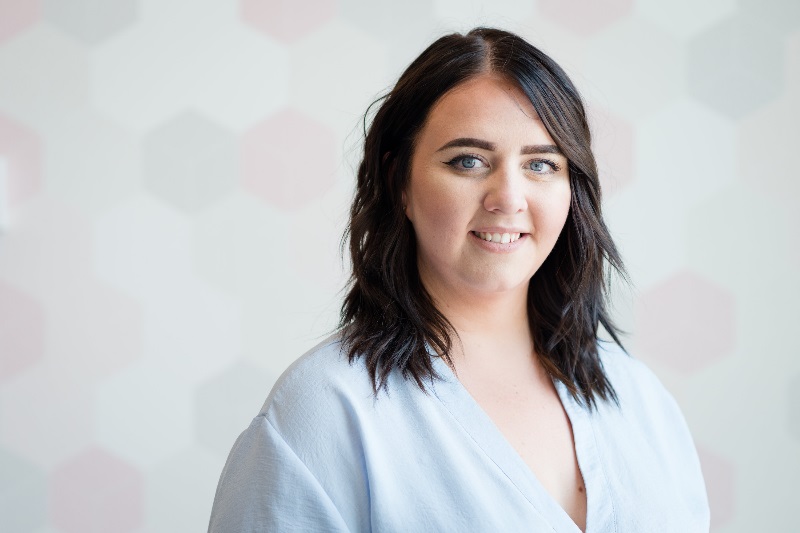
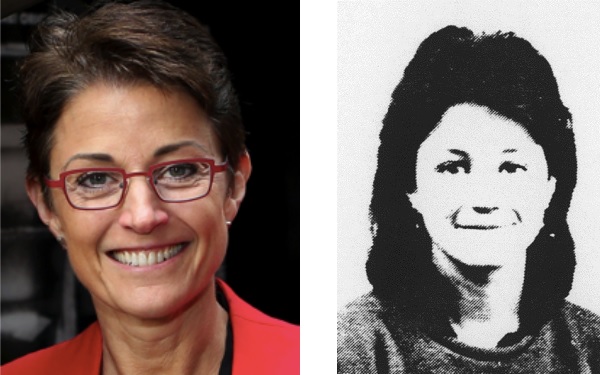
Current Students’ Union President Amie Atkinson had the opportunity to discuss the changing nature of the roles and responsibility, and how wider student life has evolved, with Liz Cross, who was the Students’ Union President in 1986/87. Serving in very different times, Cross became only the third woman to hold the post and is now a management consultant working in the North West.
Liz Cross (LC): It’s been 30 years since I sat in your chair. Shocking, isn’t it?!
Amie Atkinson (AA): It must have been so different back then…
LC: Let me start by saying that when I got involved in the Students’ Union, I don’t think I perceived myself as a student activist or a ‘political’ person. But I had in fact chosen to come to a polytechnic, despite having offers from very prestigious universities, because I had looked at the university sector in the UK – I’m Canadian - and I was very impressed by what polytechnics stood for. They felt to me to be more egalitarian and attracted more mature students, there were access points for non-traditional entrants and for me it reflected the philosophy of education I very much belief in, one of social mobility.
AA: Was social mobility and making a difference at the heart of your mandate?
LC: I came from a time and a place, Toronto in the ‘60s and ‘70s, where cooperative activity was part of our DNA. Newcomer families were building the community from the ground up. I grew up with a strong message as a kid that if you think something needs changing, first ask if other people are working on it already, and if not, get started and include other people. It was just a philosophy or a way of thinking about the world: an obligation to make things accessible and include people. I didn’t have a political party behind me and I had a great sense of injustice.
AA: How did you end up running for election?
LC: The Students’ Union was not something I had thought about getting involved with but what happened is that the then president came to meet with me, as president of Cavendish halls of residence, and started to talk to me about the democracy and the constitutional stuff, and how groups of students organised and participated. He invited me to come to general meetings, (the sovereign body of the Students’ Union), that had the power to make financial decisions, and what I noticed was there was no quorum. I thought it was strange that there was no requirement of participation to make things legitimate. I thought if we had pluralistic discussion, the wider student body would be more willing to participate. I thought about what the Students’ Union needed to be, to be relevant and engaging. That was the beginning of a journey. What does it look like now?
I owe an awful lot of my career to what I learned as President
AA: Elements are the same and in other ways it’s very different. We live in an age where the current generation are so politically aware of what is going on with the Government, what’s happening in Parliament and what laws have been passed and who the potential leaders are, that you have every student having an affiliation of sorts with a political group or movement. And so with everything the Students’ Union does it is difficult to potentially please every student because they are so engaged in democracy and politics. One thing we do now is to encourage students to do their own campaigning. Student officers will run their own campaigns and we have Priority Campaigns, largescale projects that will run over the course of a year. But we also have a pot of money available for students to run their own campaigns. Some of the projects that come out of it are brilliant – sustainability, or awareness of sexual violence.
LC: Nowadays the mechanism for communication and transparency is different. You have social media to communicate with all students. We made posters and had the student university newspaper, PULP. It was all very paper intensive! Nowadays you can just send out a tweet and reach thousands of students.
AA: Definitely.
LC: I owe an awful lot of my career to what I learned as President and in some respect I got more out of my Students’ Union training, education and experience than my MBA or any of the things for which I went on to get letters behind my name.
AA: It doesn’t matter what decade you do it in, it’s like no other job you can do. I’m so lucky to do a job like this and I’m never going to have the opportunity again. It’s lovely to hear the experience has shaped how you are today and makes me feel I’m doing something worthwhile.
LC: We share something. It’s a unique bond.
AA: It’s all so fascinating. It’s almost like so much has changed, but at the same time nothing has changed because the student movement is continuous, but the way we do things is adapted.
LC: If we do not see university life as more than the qualification we came to acquire, but as a place in which we grow and develop, then we will have robbed people. You cannot put a price tag on it in terms of what you will give back to society.
AA: The beauty of the Students’ Union is that we also recognise the needs of the membership. We make jobs, we create volunteering opportunities. If they need it, we will give it to them. It’s run by students, for students.
LC: That’s definitely what the Students’ Union is for.
